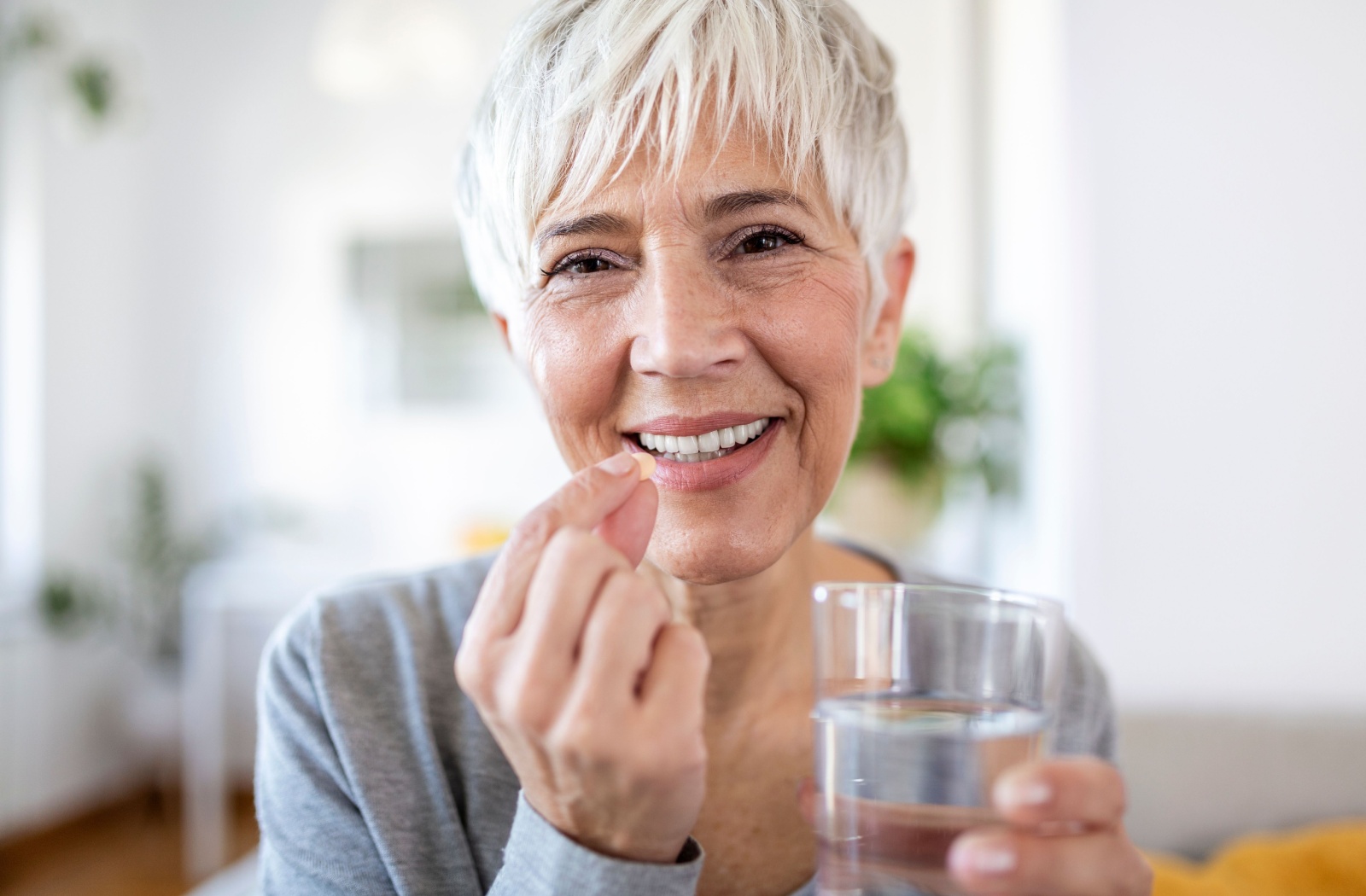As we grow older, our bones naturally become more fragile—but that doesn’t mean we’re powerless. Maintaining strong bones is essential to staying active, mobile, and independent throughout the aging process.
The good news? You can support your bone health for many years with a few healthy habits.
Let’s explore 7 practical and effective ways to keep your bones strong as you age: boosting calcium and vitamin D, staying active, avoiding tobacco and alcohol, managing medications, maintaining a healthy weight, and getting bone density tests when needed.
Why Bone Health Matters as You Age
Your bones are living tissue. They’re constantly breaking down and rebuilding in a process called remodeling. During your younger years, your body produces bone faster than it breaks down, resulting in increased bone mass.
After age 40, bone mass begins to decline gradually. For some people, that loss can lead to osteoporosis, a condition where bones become brittle and are more likely to fracture.
Staying proactive about bone health can reduce your risk of serious injuries, support your posture and balance, and help you live a more active, independent lifestyle.
7 Easy Ways to Keep Your Bones Strong as You Age
You can make a significant difference in maintaining healthy bones with these 7 practical methods.
1. Make Calcium a Daily Priority
Calcium is the cornerstone of strong bones. About 99% of the calcium in your body is stored in your bones and teeth.
How much do you need? Generally:
- 1,000 mg/day for adults ages 19–50
- 1,200 mg/day for women over 50 & men over 70
Calcium-rich foods include:
- Dairy products (milk, cheese, yogurt)
- Leafy greens like collard greens & kale
- Fortified plant-based milk
- Canned salmon or sardines (with bones)
- Tofu made with calcium sulfate
If your diet isn’t providing sufficient calcium, consider discussing supplements with your healthcare provider.
2. Don’t Skip Vitamin D
Vitamin D works hand in hand with calcium to help your body absorb it properly. Without enough vitamin D, your body can’t effectively use the calcium you consume, even if you’re getting enough of it.
How much do you need? Generally:
- 600 IU/day for adults under 70
- 800 IU/day for adults over 70
Good sources of vitamin D include:
- Fatty fish (like salmon, mackerel, & tuna)
- Egg yolks
- Fortified cereals, milk, & juices
- Sensible sun exposure (10–30 minutes a few times a week)
You may benefit from taking a vitamin D supplement if you live in a region with limited sunlight or spend most of your time indoors.
3. Stay Active with Weight-Bearing Exercises
Exercise isn’t just for your muscles—your bones benefit too. Weight-bearing and resistance exercises help slow bone loss and build density, especially in older adults.
Try incorporating activities such as:
- Brisk walking or hiking
- Dancing or aerobics
- Climbing stairs
- Tai chi or yoga (for balance & flexibility)
- Lightweight training or resistance bands
Just 30 minutes a day of moderate activity can make a big difference. Bonus: it also improves your balance, reducing the risk of falls and fractures.

4. Limit Tobacco & Alcohol Use
Smoking and excessive alcohol intake are 2 lifestyle habits that can weaken your bones over time. Nicotine slows bone-forming cells, and heavy drinking interferes with your body’s ability to absorb calcium.
Here’s what to keep in mind:
- Quit smoking or seek support to stop if needed
- Limit alcohol to 1 drink per day for women & 2 for men
Your bones—and your overall health—will thank you.
5. Be Mindful of Medications & Health Conditions
Some prescription medications can impact your bone density over time, particularly when used long-term. These may include:
- Steroids (glucocorticoids)
- Some anti-seizure drugs
- Medications for thyroid disorders or certain cancers
- Proton pump inhibitors (used for acid reflux)
Also, certain health conditions like rheumatoid arthritis, thyroid issues, and eating disorders can negatively impact bone health.
If you’re managing chronic health conditions or taking daily medications, talk to your doctor about how they may affect your bones and whether you should monitor your bone density.
6. Maintain a Healthy Body Weight
Weight—both underweight and overweight—can impact your bone health.
When you’re chronically underweight or experience significant weight loss, it can lead to lower bone mass and an increased risk of fractures. On the other hand, being overweight can put extra stress on your bones and joints, increasing your risk of falls.
Aim for a balanced diet rich in nutrients paired with regular physical activity to maintain a healthy weight and protect your bone structure.
7. Get a Bone Density Test (If Recommended)
If you’re over the age of 65 or younger and have risk factors for osteoporosis (such as family history or early menopause), ask your healthcare provider about a bone density scan, also known as a DEXA scan.
This simple, painless test can detect early signs of bone loss and help your doctor determine whether medication or lifestyle changes are needed to prevent further weakening.
Healthy Aging in Wareham
Caring for your bones doesn’t have to feel complicated. By focusing on good nutrition, staying active, and being mindful of habits that impact bone strength, you can support your body through every stage of life.
At All American Assisted Living at Wareham, we’re passionate about helping our residents thrive through personalized care, engaging wellness programs, and an active lifestyle that supports strong bones and overall health. Ready to learn more about how we can support your well-being? Book a tour today and discover how we help seniors enjoy vibrant lives—strong, independent, and supported every step of the way.





